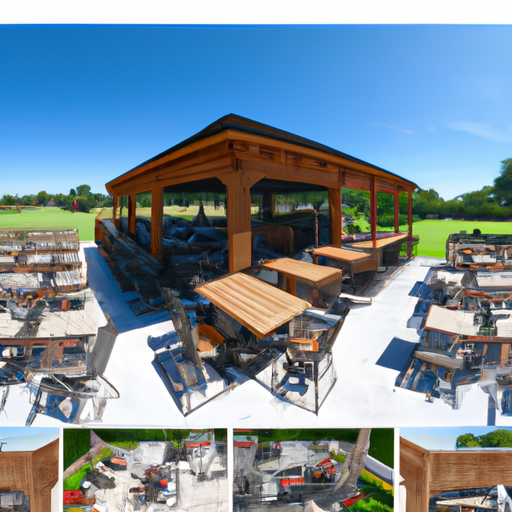
Personalization: Tailoring the guest experience through a comprehensive 360° guest profile
In today’s highly competitive hospitality industry, providing a personalized guest experience is crucial for hotels and resorts to stand out from the crowd. Guests no longer want a one-size-fits-all approach; they expect their stay to be tailored to their individual preferences and needs. This is where a comprehensive 360° guest profile comes into play.
A 360° guest profile is a detailed collection of information about each guest, including their preferences, past stays, and feedback. It goes beyond basic demographic data and allows hotels to truly understand their guests on a personal level. By gathering and analyzing this data, hotels can create a more personalized and memorable experience for each guest.
One of the key benefits of a comprehensive 360° guest profile is the ability to anticipate and meet guests’ needs before they even express them. For example, if a guest has a preference for a certain type of pillow or a specific brand of toiletries, this information can be stored in their profile. When they make a reservation, the hotel can ensure that their room is equipped with their preferred amenities, creating a sense of comfort and familiarity.
Furthermore, a 360° guest profile allows hotels to tailor their marketing and communication efforts to each individual guest. By understanding their preferences and past behavior, hotels can send targeted offers and promotions that are more likely to resonate with the guest. This not only increases the chances of the guest making a repeat booking but also enhances their overall experience by providing them with relevant and valuable information.
Another way in which a comprehensive guest profile enhances the guest experience is through personalized recommendations and suggestions. By analyzing a guest’s past stays and preferences, hotels can suggest nearby attractions, restaurants, and activities that align with their interests. This not only helps guests make the most of their stay but also creates a sense of being cared for and understood by the hotel.
Moreover, a 360° guest profile enables hotels to proactively address any issues or concerns that a guest may have. By keeping track of past feedback and complaints, hotels can ensure that they are not repeated in future stays. For example, if a guest had a negative experience with the room temperature during their last stay, the hotel can take proactive measures to ensure that the room temperature is set to their liking before their arrival.
In conclusion, a comprehensive 360° guest profile is a powerful tool for hotels and resorts to enhance the guest experience. By gathering and analyzing detailed information about each guest, hotels can personalize their offerings, anticipate their needs, and provide a level of service that goes above and beyond their expectations. In today’s highly competitive hospitality industry, personalization is key, and a 360° guest profile is the key to achieving it. So, if hotels want to stay ahead of the game and create truly memorable experiences for their guests, investing in a comprehensive guest profile is a must.
Streamlining Operations: Improving efficiency and service delivery with a comprehensive 360° guest profile

In today’s competitive hospitality industry, providing an exceptional guest experience is crucial for success. Hoteliers are constantly seeking ways to streamline operations and improve efficiency to ensure that guests have a memorable stay. One effective strategy that has gained popularity is the use of a comprehensive 360° guest profile.
A 360° guest profile is a centralized database that contains detailed information about each guest. It includes not only basic contact details but also preferences, past stays, special requests, and any other relevant information. By having a complete view of each guest, hotel staff can personalize the guest experience and anticipate their needs.
One of the key benefits of a 360° guest profile is the ability to enhance service delivery. When a guest checks in, the front desk staff can access their profile and instantly have a wealth of information at their fingertips. They can greet the guest by name, inquire about their preferences, and offer personalized recommendations. This level of personalization creates a warm and welcoming atmosphere, making guests feel valued and appreciated.
Furthermore, a comprehensive guest profile allows hotel staff to anticipate guest needs. For example, if a guest has a history of requesting extra pillows or a specific type of room, this information can be noted in their profile. When the guest makes a reservation, the staff can proactively ensure that their preferences are met, saving time and effort for both the guest and the hotel.
In addition to improving service delivery, a 360° guest profile also streamlines operations. With all guest information stored in one place, hotel staff can easily access and update the profile as needed. This eliminates the need for multiple systems or manual record-keeping, saving time and reducing the risk of errors. It also allows for better communication between departments, ensuring that everyone is on the same page when it comes to guest preferences and requests.
Another advantage of a comprehensive guest profile is the ability to track guest history. By analyzing past stays, hoteliers can gain valuable insights into guest behavior and preferences. This information can be used to tailor marketing campaigns, create targeted promotions, and improve overall guest satisfaction. For example, if a guest frequently stays during a specific time of year, the hotel can send them personalized offers for future stays during that period.
Moreover, a 360° guest profile can also help hotels build long-term relationships with their guests. By keeping track of guest preferences and past interactions, hotel staff can provide a consistent and personalized experience each time the guest visits. This level of attention to detail fosters loyalty and encourages guests to return in the future.
In conclusion, a comprehensive 360° guest profile is a valuable tool for enhancing the guest experience in the hospitality industry. By centralizing guest information and providing a complete view of each guest, hotels can personalize service delivery, anticipate guest needs, streamline operations, and build long-term relationships. In today’s competitive market, investing in a comprehensive guest profile is a smart strategy for improving efficiency and ensuring guest satisfaction.
Building Loyalty: Enhancing guest satisfaction and fostering long-term relationships through a comprehensive 360° guest profile
Enhancing the Guest Experience through a Comprehensive 360° Guest Profile
In the hospitality industry, guest satisfaction is paramount. Hoteliers and service providers are constantly seeking ways to improve the guest experience and foster long-term relationships. One effective strategy that has gained popularity in recent years is the use of a comprehensive 360° guest profile. This tool allows hoteliers to gather and analyze data about their guests, enabling them to personalize their services and create a more memorable stay.
A 360° guest profile goes beyond the basic information collected during the booking process. It includes details about the guest’s preferences, interests, and past experiences. By gathering this information, hoteliers can tailor their offerings to meet the unique needs of each guest. For example, if a guest has indicated a preference for a certain type of pillow, the hotel can ensure that it is provided in their room. If a guest has previously enjoyed a particular spa treatment, the hotel can offer it again during their stay. These personalized touches make guests feel valued and appreciated, leading to increased satisfaction and loyalty.
The benefits of a comprehensive 360° guest profile extend beyond the individual guest. By analyzing the data collected, hoteliers can identify trends and patterns that can inform their overall business strategy. For example, if a large number of guests indicate an interest in outdoor activities, the hotel can invest in developing outdoor amenities and promoting them to future guests. This not only enhances the guest experience but also helps the hotel differentiate itself from competitors and attract a specific target market.
Implementing a comprehensive 360° guest profile requires a robust data management system. Hoteliers must ensure that the data collected is accurate, secure, and easily accessible. This may involve investing in technology solutions that can integrate with existing systems and automate data collection processes. It is also important to obtain the necessary consent from guests to collect and use their data in accordance with privacy regulations. By taking these steps, hoteliers can build trust with their guests and demonstrate their commitment to protecting their privacy.
While a comprehensive 360° guest profile is a powerful tool, it is important to use the data collected responsibly. Hoteliers must strike a balance between personalization and intrusion. Guests should feel that their privacy is respected and that the information they provide is used to enhance their experience, not exploit it. Transparency is key in this regard. Hoteliers should clearly communicate to guests how their data will be used and give them the option to opt out if they wish. By being transparent and respectful, hoteliers can build trust and foster long-term relationships with their guests.
In conclusion, a comprehensive 360° guest profile is a valuable tool for enhancing the guest experience and building loyalty. By gathering and analyzing data about their guests, hoteliers can personalize their services and create a more memorable stay. This not only increases guest satisfaction but also helps hoteliers identify trends and inform their overall business strategy. However, it is important to use the data collected responsibly and respect guests’ privacy. By doing so, hoteliers can build trust and foster long-term relationships with their guests, ultimately leading to increased loyalty and revenue.


